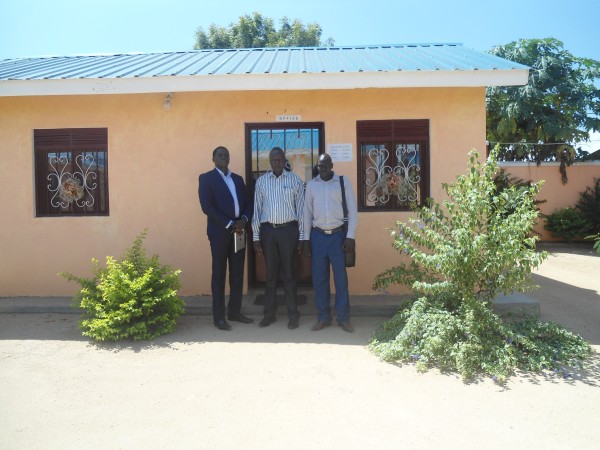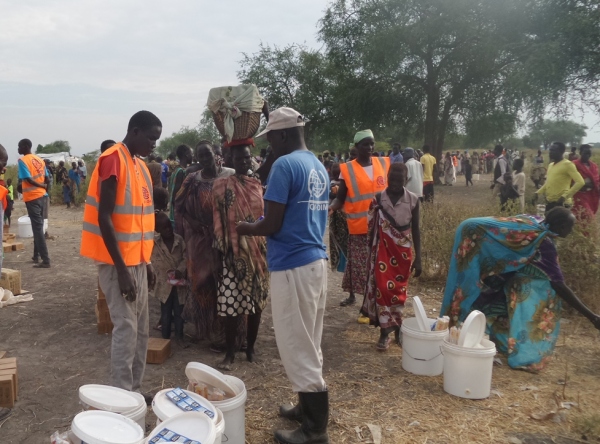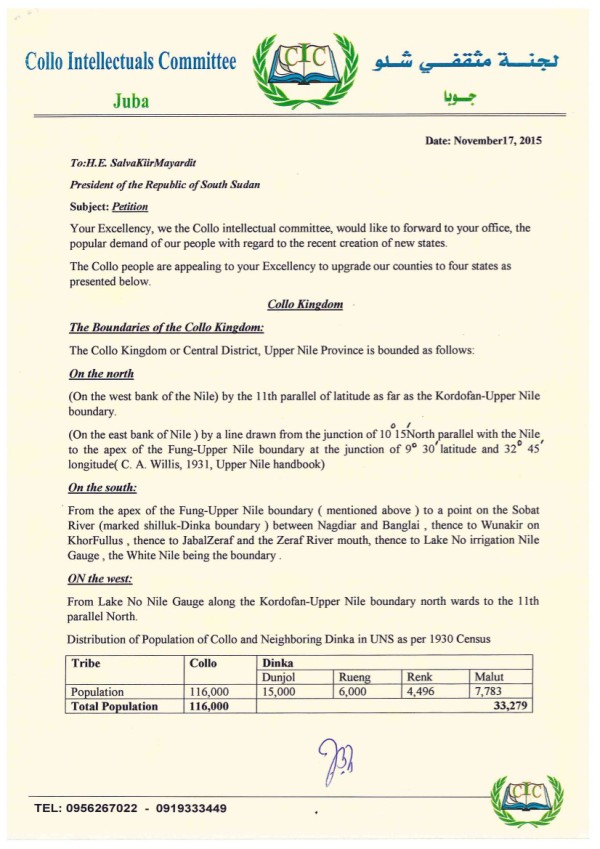By Emmanuel Kenyi
When I visited Maban County in Upper Nile state in 2012, the county was overwhelmed by refugees from Blue Nile state in Sudan. Thousands of children arrived every day – totally exhausted after trekking for weeks with little to eat or drink. Many spent sleepless nights in caves to shelter from rain. Unfortunately, they arrived at the refugee camp at the peak of the rainy season, and the South Sudanese gods of rain were unleashing a merciless torrent on the poor souls that had no shelter. In desperation, they took shelter under thorny trees that offered very little protection from the rain.
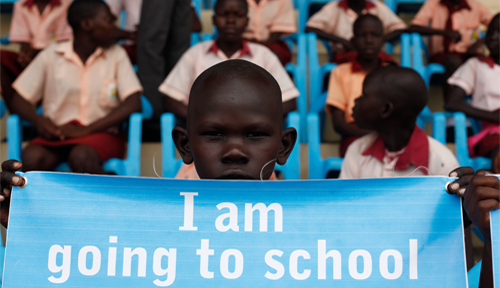
To help alleviate the suffering of vulnerable children and their families, Save the Children launched an emergency response focusing on education and child protection. However, only a few children enrolled or attended the activities at the Child Friendly Spaces that had been set up. The fact that their families were not settled made things worse for the children. Something needed to be done, and Save the Children launched a community mobilization and awareness raising programme to show children, their families, and the community the importance of education and the dangers of child marriage.
Child Resilience Innovation
To ensure obstacles that prevent children from enrolling into schools were removed, Save the Children introduced the ‘Youth and Child Resilience Programme’. It started in 2013 with child resilience workshops for 400 children aged 12 – 14yrs. In 2014, the programme was piloted in Maban, and it targeted youth between 14 – 17yrs. One hundred youth and 400 children graduated. The community was impressed, and UNHCR was impressed – all of which necessitated continuation of the programme. In 2015, another group of 492 graduated. Today, over 10,000 children are enrolled in the Save the Children-supported schools – thanks to innovative approaches to influence social change among the refugees.
From Refugees to Film Makers
A child-led video making project was also initiated, and it attracted over 40 students who were trained to act and record their own films. The video project was designed to allow children to express their views and ideas in a safe environment, raise awareness on issues hindering girls’ education, and show the benefits of educating girls to the community. Mr. Kaya, the refugee leader in Doro Refugee Camp was quite confident about the prospects of the video project, arguing that, “…this video will positively change attitudes of the people in this camp because it is produced by our own children in this camp.”
Real Positive Results
The child resilience program has brought positive changes in children, and those changes have been acknowledged by teachers and parents during focus group discussions, as well as in feedback from field monitoring reports. Children are now more aware of their rights and roles, they are more active in classrooms, more helpful at home, and their participation in extra-curricular activities has improved. They have taken a leading role in composing songs and drafting scripts for their own drama to help raise awareness in the camp. Their interaction with fellow children and teachers has improved, and they are also playing a key role in relaying advocacy messages on child abuse and exploitation.
Some of the children I met during the difficult start to refugee life are now enjoying education and acting as ‘change agents’ and advocates for the rights of children.
Hear It From The Children
Intesar*, a 15yr old said: “When I attended my first resilience workshop my mother was not happy. I explained what we were told about the programme but she did not understand. I continued attending and she called my father and told him ‘see your mad daughter’. My father asked me what I was doing and I explained the importance of child resilience. He too did not understand my explanation until he attended a parents meeting. After this meeting, he told me that the workshops I attended were good for me. After some time, my parents saw the way I changed. Before attending child resilience, I could not talk in front of people. When I tried to talk my body started to shake. Now I am able to talk and share many things without being afraid.”
Isaf*, a 16yr old separated child said: “The child resilience program has changed me, but also my aunt who looks after me. When I joined the programme my life was very hard. Like some of my friends, I was beaten by my caregiver due to influence from our neighbours. She stopped me from going to school and wanted me to be married. When I learned about my rights and how child marriage is not good, I went to Save the Children’s child protection staff and they came and talked to my caregiver, and now they have accepted and stopped my marriage. Now I am going to school and my caregiver is happy with the child resilience programme. I also did not know how to talk to other children or to my teacher. But now I am able to participate in class and play well with my friends. I appreciate Save the Children because we have learned how to respect and talk to people. All children should learn this.”
Amina Abdelaziz*, a 15yr old said: “Before resilience I did not respect other people. But now I am respecting other people, and I can see my relationship with others improving. I have seen that most of the girls who have not attended child resilience training are not respecting others and they tell us that we are doing something different which is not good, but I know our way is better for our community.”
Hanan*, a 16yr old said: “Before Save the Children provided me with resilience training, I found it hard to avoid conflict with others. I am now able to avoid problems and solve issues between me and other children.”
Hashba Mohamed*, a 13yr old said: “Before resilience training, I had never heard of child rights. Now I am able to remember them and talk about them. Children have the right to go to school, go to health clinics, and visit friends and relatives. I understand that there are good and bad places in our community. *Names have been changed to protect the identity of the children.
Emmanuel Kenyi is the Deputy Information and Communications Manager for Save the Children – South Sudan
PaanLuel Wël Media Ltd - South Sudan
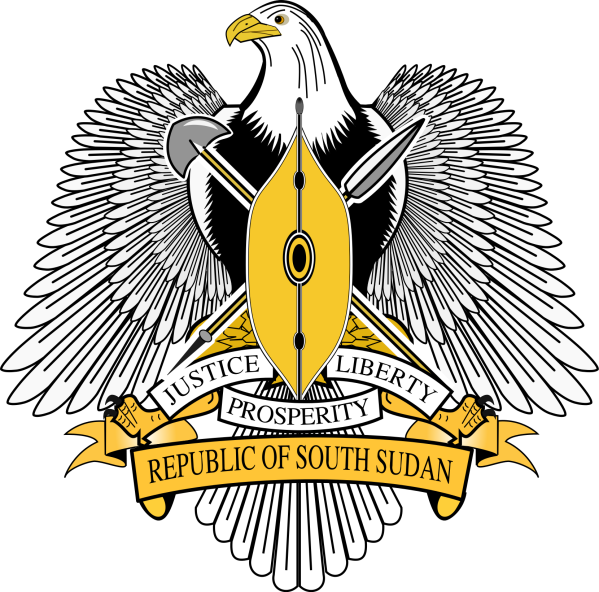 South Sudan’s coat of arms, in which the eagle symbolizes vision, strength, resilience and majesty, and the shield and spear the people’s resolve to protect the sovereignty of their republic and work hard to feed it.
South Sudan’s coat of arms, in which the eagle symbolizes vision, strength, resilience and majesty, and the shield and spear the people’s resolve to protect the sovereignty of their republic and work hard to feed it.  Interns helping the wounded at Juba Teaching Hospital
Interns helping the wounded at Juba Teaching Hospital 
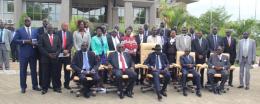
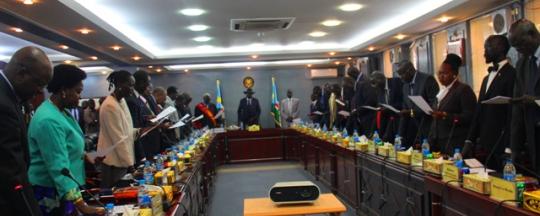
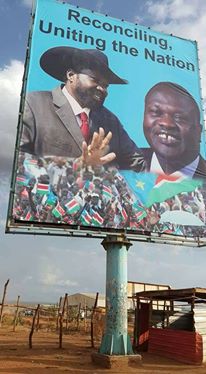 The signpost welcoming the arrival of Riek Machar in Juba, put up by the government, at the site of Shirkhat suburb of Juba before the Juba Bridge
The signpost welcoming the arrival of Riek Machar in Juba, put up by the government, at the site of Shirkhat suburb of Juba before the Juba Bridge 